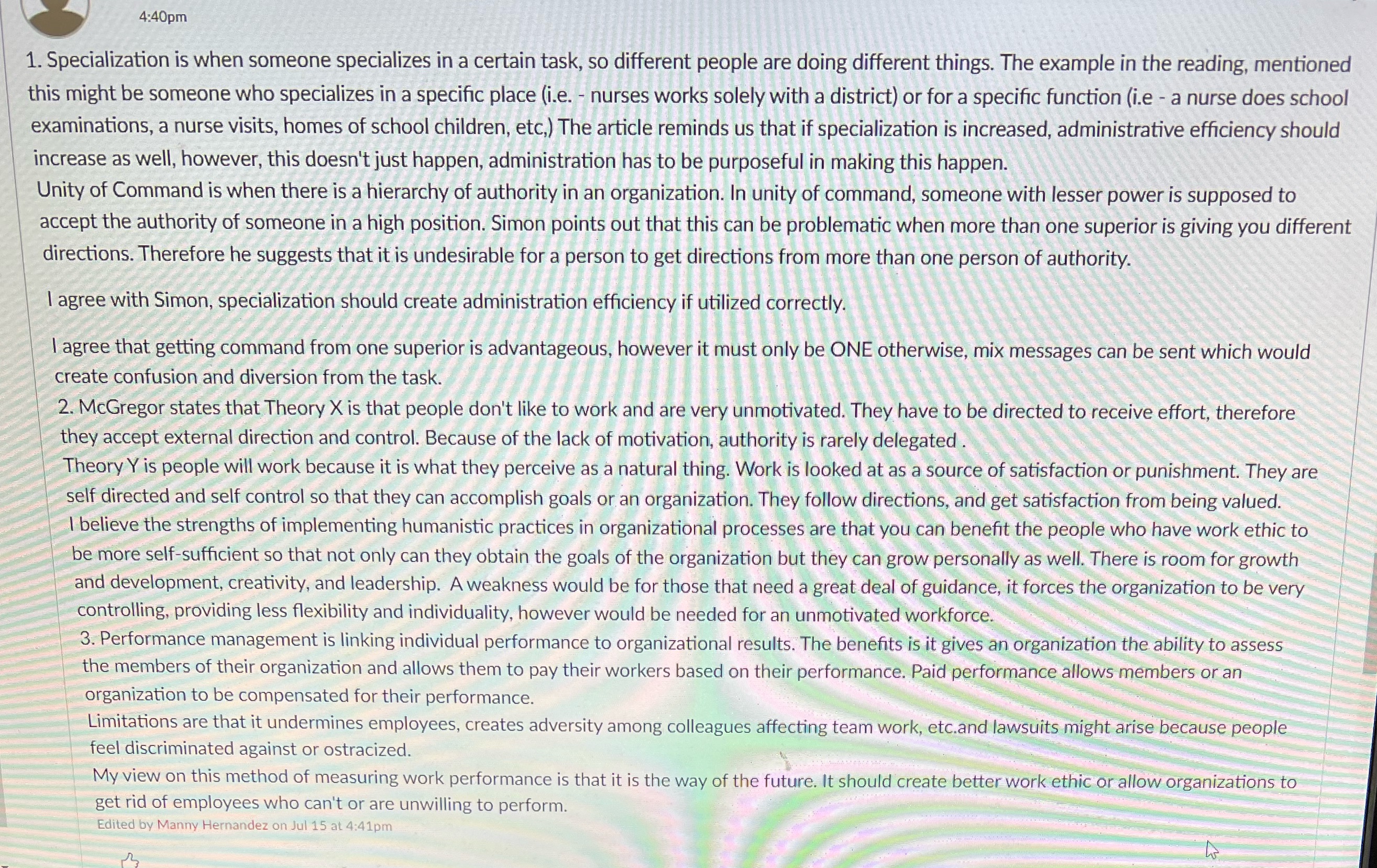Respond to my classmates information. Be very kind please
4:40pm 1. Specialization is when someone specializes in a certain task, so different people are doing different things. The example in the reading, mentioned this might be someone who specializes in a specific place (i.e. - nurses works solely with a district) or for a specific function (i.e - a nurse does school examinations, a nurse visits, homes of school children, etc,) The article reminds us that if specialization is increased, administrative efficiency should increase as well, however, this doesn't just happen, administration has to be purposeful in making this happen. Unity of Command is when there is a hierarchy of authority in an organization. In unity of command, someone with lesser power is supposed to accept the authority of someone in a high position. Simon points out that this can be problematic when more than one superior is giving you different directions. Therefore he suggests that it is undesirable for a person to get directions from more than one person of authority. I agree with Simon, specialization should create administration efficiency if utilized correctly. I agree that getting command from one superior is advantageous, however it must only be ONE otherwise, mix messages can be sent which would create confusion and diversion from the task. 2. McGregor states that Theory X is that people don't like to work and are very unmotivated. They have to be directed to receive effort, therefore they accept external direction and control. Because of the lack of motivation, authority is rarely delegated Theory Y is people will work because it is what they perceive as a natural thing. Work is looked at as a source of satisfaction or punishment. They are self directed and self control so that they can accomplish goals or an organization. They follow directions, and get satisfaction from being valued. I believe the strengths of implementing humanistic practices in organizational processes are that you can benefit the people who have work ethic to be more self-sufficient so that not only can they obtain the goals of the organization but they can grow personally as well. There is room for growth and development, creativity, and leadership. A weakness would be for those that need a great deal of guidance, it forces the organization to be very controlling, providing less flexibility and individuality, however would be needed for an unmotivated workforce. 3. Performance management is linking individual performance to organizational results. The benefits is it gives an organization the ability to assess the members of their organization and allows them to pay their workers based on their performance. Paid performance allows members or an organization to be compensated for their performance. Limitations are that it undermines employees, creates adversity among colleagues affecting team work, etc.and lawsuits might arise because people feel discriminated against or ostracized. My view on this method of measuring work performance is that it is the way of the future. It should create better work ethic or allow organizations to get rid of employees who can't or are unwilling to perform. Edited by Manny Hernandez on Jul 15 at 4:41pm







